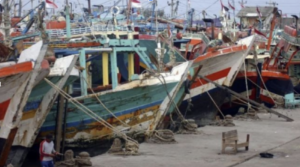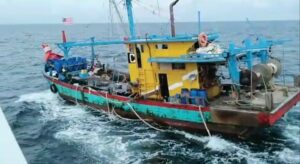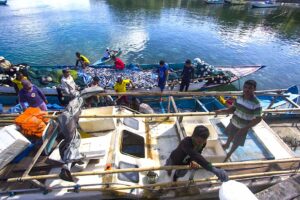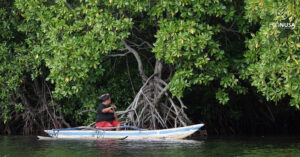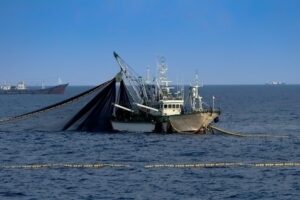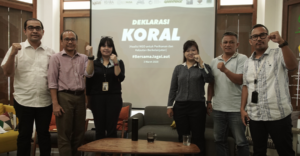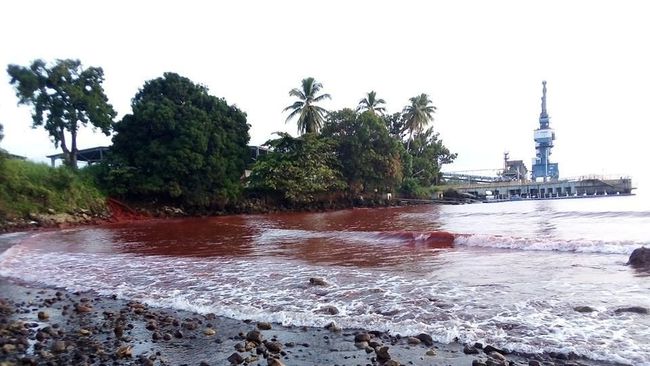
The nickel processing industry is expected to become the core of Indonesia’s mining sector. Through his policies, President Joko Widodo wants to encourage the acceleration of the Battery-Based Electric Vehicle (KLBB) program and he has signed a Presidential Regulation on the Acceleration of the KLBB Program two years ago. With this regulation, as the president said himself, the government seeks to encourage the automotive industry by building an electric car industry in Indonesia. He went on to say that 60% of what goes into developing electric cars is in the battery, and with Indonesia’s abundance of the raw materials to make the battery, the president has a new mission to get Tesla, an American electric vehicle and clean energy company, to invest in Indonesia.
However, Greenpeace Indonesia stated that the government’s efforts to boost the electric car industry are not free from environmental threats. The process of turning a raw nickel into batteries results in a large amount of acid waste that is full of heavy metals. According to Mongabay, Indonesia has plans to add 30 new nickel smelters, some of which are specifically designed to produce nickel batteries. What then becomes a problem is that in order to cut production costs, it’s been decided that waste from nickel processing would be discharged into Indonesian waters or through deep-sea tailings disposal (DSTD).
In the journal Deep-Sea Ecosystems: Biodiversity and Anthropogenic Impacts, some of the negative impacts of the practice of DTSD are the suppression of the benthic zone layer and the diversity of organisms in it due to sedimentation which results in damage and death of organisms; an increase in the number of toxins produced by heavy metals both settles or floats; the tear of the structure of feed and habitat for larvae due to the sharp shape of DTSD particles; and avalanches of waste or floating particles that can be carried to coastal residential areas and fish catch areas which will have an impact on the social and economic life of coastal areas or fishing communities. This practice also causes toxic substances to be taken up by marine organisms, such as seagrass and various types of fish and shellfish that are consumed by humans. This is because, through the biological magnification process, they are able to accumulate heavy metals. However, in the long term, this can lead to grave impacts on human health.
Greenpeace Indonesia’s Renewable Energy Campaigner Satrio Swandiko Prilianto also highlighted the problems of human rights violations, labor rights, and serious environmental damage related to the battery and mining industries. Similar to Greenpeace, the People’s Coalition for Fisheries Justice (KIARA), together with the Mining Advocacy Network (JANTAM), also highlighted the same concerns in 2020, where the Coordinating Ministry for Maritime Affairs and Investment (Kemenko Maritim) invited a number of central and regional government agencies to a coordination meeting regarding the licensing of deep-sea tailings placement (DPST) to follow up on the submissions of several hydrometallurgical companies in South Halmahera, Obi Island in North Maluku, and Morowali, Central Sulawesi. The concerns were centralized on how the disposal of nickel waste into the deep sea will contribute to the rate of destruction of people’s living spaces, coastal and small island ecosystems (which will impact sea levels), as well as the sustainability of mangrove ecosystems, seagrass beds, coral reefs, and fishery resources. In the end, this won’t only destroy the sea ecosystem as a whole but also threatens the safety of human life as was the case in Brazil in 2015.
KLBB, a program established by the Indonesian government, is aimed to reduce the impact of environmental pollution in the air and the exploitation of fossil fuel, according to Luhut Binsar Pandjaitan, Coordinating Minister for Maritime Affairs and Investment. As 2.2 million Indonesian fishers’ livelihoods depend on the sea and coastal areas, it would be tragic if the noble goal of the KLBB program in turn sacrifices our environment.
